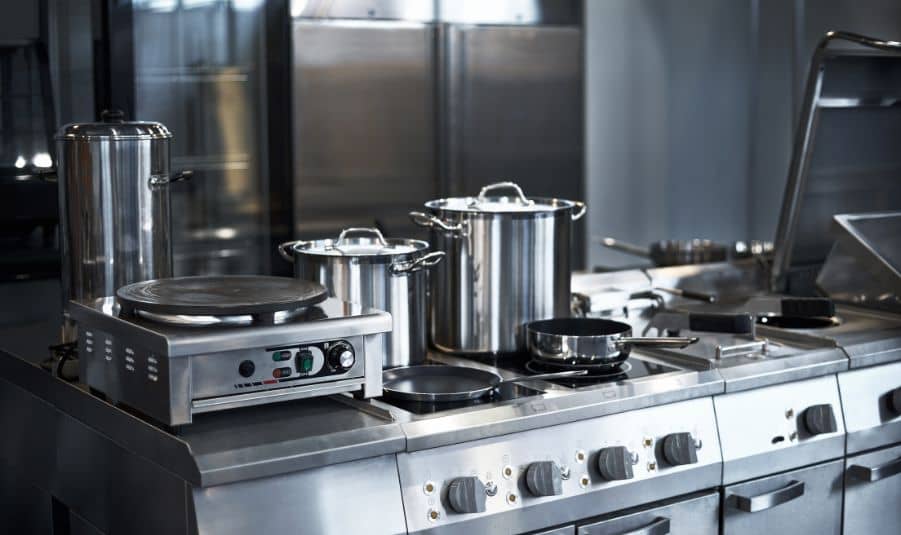If you’re operating a kitchen, what’s more important than serving unique and delicious food for your customers, is ensuring that food is safe. There’s a lot you must consider when cooking, but you must also consider how you store the food and if there are any potential issues. Learn the food safety and storage basics for commercial kitchens down below!
Clean, Clean, Clean
The first and most important rule of food safety is that you must always keep everything clean. Food can be incredibly messy, but what’s even worse is that a messy kitchen can make your food unsafe. For example, if you don’t properly clean your cutting board and knife after cutting meat, everything you cut afterward will potentially have raw meat juice on it, leading to foodborne illnesses.
Implement these steps in your kitchen regarding food preparation: clean, separate, cook, and chill. Outside of food, you must also keep the entire kitchen clean. Messy and cluttered floors can cause people to slip and fall, but they’ll also attract pests, a variable you want nowhere near the food you’re preparing.
Start a Labeling System
One of the best ways to keep your kitchen and food safe is to start a labeling system. The second you purchase food and ingredients, whether that’s meat, produce, or anything in between, give it a label that says how long it will stay fresh. Everyone in your kitchen needs to know what is fresh and what’s going to spoil, and word of mouth is not an effective way to communicate this. In addition to showing when food will spoil, write what foods it should not come into contact with to prevent cross-contamination. You can go further by labeling your equipment, so one cutting board is designated for meat products while another is for produce.
Use Quality Equipment
In addition to properly preparing these foods to ensure they don’t become cross-contaminated, you must adequately store them, so they don’t spoil. Certain foods require storage within a specific temperature range because anything too high or low will be unsafe. To keep everything in its proper temperature range, use quality equipment such as freezers and refrigerators, and conduct regular checks to ensure they’re working correctly. A malfunctioning refrigerator can leave you without food to cook and no income to show for it.
If you want to properly maintain a commercial kitchen, you’ll need to follow these food safety and storage guidelines. Without food safety, your food can hurt customers and put you out of business. Safety is important even when you’re in a mobile commercial kitchen, which is why you should work with us at CGS Premier. We have plenty of options to take your commercial kitchen on the road, and we can help ensure that you have the proper equipment and storage necessary to keep your food safe!




